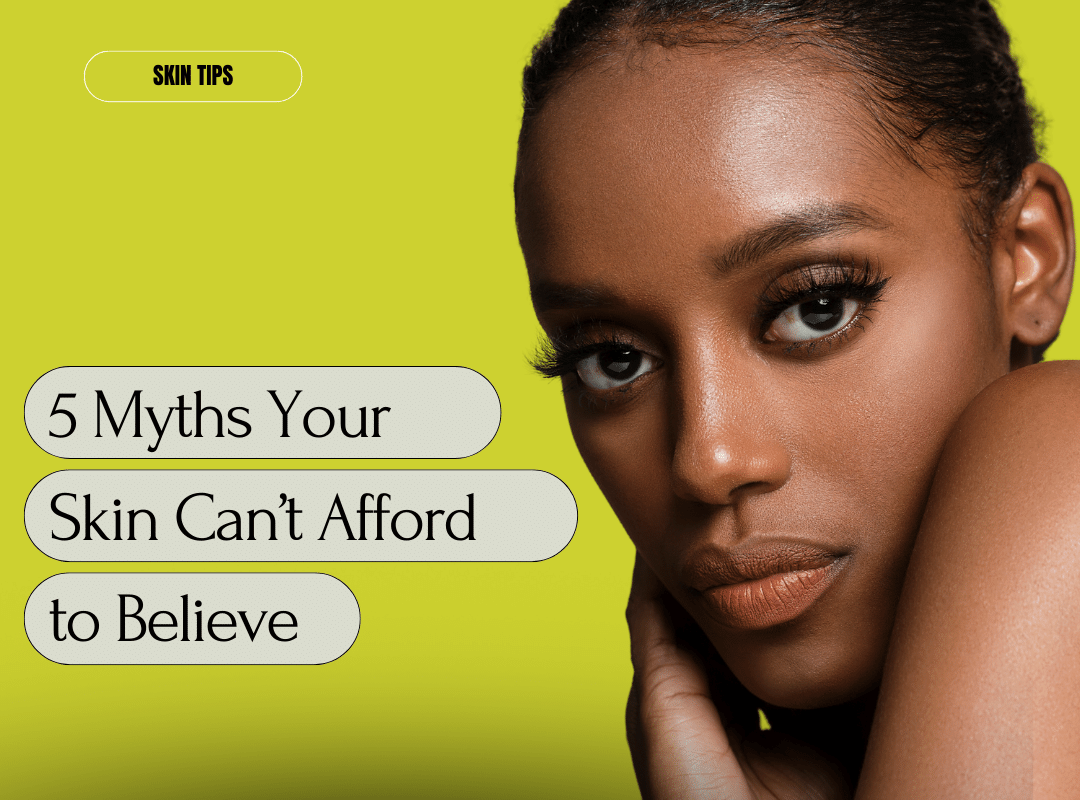
5 Skincare Myths for Melanated Skin: Debunked!
Share
Are you tired of skincare advice that doesn't quite fit your skin? You're not alone. As a skincare enthusiast and entrepreneur specializing in products for melanated skin, I've heard it all. From DIY recipes to supposed miracle cures, the internet is filled with misinformation about what's best for your skin. Today, we're debunking five of the most persistent myths so you can take control of your skincare routine and achieve the radiant complexion you deserve.
-
Lemon Juice to Lighten Dark Spots...
- Myth: "Lemon juice can lighten dark spots on black skin."
- Debunked: Lemon juice is highly acidic and can cause irritation, inflammation, and increased sensitivity, especially on darker skin tones. It can worsen hyperpigmentation rather than lighten it.
- Solution: Keep your lemons for making lemonade. Consider using skincare products containing ingredients like lemon peel extract, niacinamide, vitamin C, or alpha hydroxy acids (AHAs) such as glycolic acid. These ingredients are known to effectively fade dark spots and hyperpigmentation without causing irritation or sensitivity.
-
Use Coconut Oil for Acne and Dry Skin...
- Myth: "Coconut oil is a cure-all for skin concerns."
- Debunked: While coconut oil has moisturizing properties, it can be comedogenic and may clog pores on your face, leading to acne and breakouts, especially for those with oily or acne-prone skin.
- Solution: Look for products that contain non comedogenic oils such as Grapeseed, Rosehip, Jojoba, or Avocado oil. These moisturizers provide hydration without clogging pores, making them suitable for all skin types.
-
Use Baking Soda to Exfoliate and Lighten Skin...
- Myth: "Baking soda is an effective exfoliant for skin."
- Debunked: Baking soda is too harsh for the delicate skin on the face and can disrupt the skin's natural pH balance, leading to irritation, redness, and potential damage to the skin barrier.
- Solution: Choose gentle exfoliants such as jojoba beads or AHAs. These exfoliants effectively remove dead skin cells and unclog pores without disrupting the skin's natural pH balance or causing irritation.
-
Rubbing Alcohol and Hydrogen Peroxide
- Myth: "Applying rubbing alcohol or hydrogen peroxide can help to dry out acne."
- Debunked: While these substances have antibacterial properties, they are too harsh and drying for skin. They can strip away the skin's protective barrier, leading to irritation, inflammation, and potentially more breakouts. It's better to use products specifically formulated for acne treatment.
- Solution: Use alcohol free products containing ingredients like Witch Hazel, White Willow Bark Extract, or Tea Tree Oil. These ingredients effectively target acne-causing bacteria and reduce inflammation without causing excessive dryness or irritation.
-
You Don't Need to Moisturize if Your Skin is Oily
- Myth: "Skipping moisturizer will reduce oiliness and clear acne."
- Debunked: Depriving the skin of moisture by skipping moisturizer can actually trigger it to produce more oil to compensate, leading to clogged pores and more breakouts. Using a can help maintain skin hydration without aggravating acne.
- Solution: Incorporate a lightweight, non-comedogenic moisturizer into your skincare routine to maintain skin hydration without exacerbating acne. Look for moisturizers labeled as non-comedogenic to ensure they won't clog pores or worsen breakouts.
By shedding light on these skincare myths, we hope to empower you to make informed choices about your skincare routine. Remember, the key to healthy, radiant skin is not just about what you put on your skin but also understanding what to avoid. Stay tuned for more myth-busting tips and expert advice Fabyoulife!
